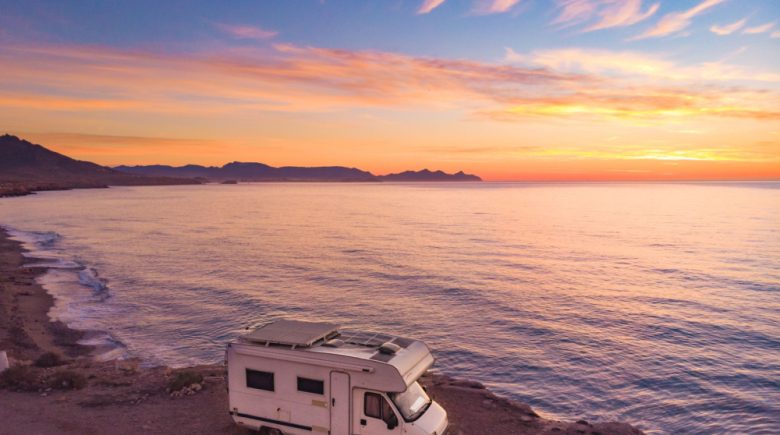An RV (recreational vehicle) can be an exciting addition to your travel lifestyle, offering the freedom to explore while enjoying the comforts of home. However, owning an RV also comes with responsibilities, including ensuring you have the right insurance coverage. Here’s what you need to know about RV insurance and why it’s essential.
What Is RV Insurance?
An RV, or recreational vehicle, is a motorized vehicle that combines transportation with living quarters. Unlike a camper trailer that is towed behind another vehicle, an RV is self-contained with its own engine and drivetrain, making it a full-fledged motor vehicle.
RV insurance is a specialized type of coverage designed to protect your RV, its contents, and its users. It covers damages to the RV, liability for injuries or damages to others, and additional risks unique to RV use. Unlike campers that might be covered under your auto insurance policy, an RV requires its own dedicated policy due to its complexity and use.
Do You Need RV Insurance?
If you plan to use your RV on public roads, RV insurance is not optional—it’s a legal requirement. To register and tag your RV, you must have proof of insurance in most states. Without proper coverage, driving your RV can lead to penalties, fines, and significant financial risk.
Even if your state allows you to add your RV to your existing auto insurance policy, doing so may not provide sufficient coverage. RV insurance ensures that your vehicle is fully protected against risks such as accidents, liability, and damages specific to RVs.
What Does RV Insurance Cover?
RV insurance provides a range of protections that go beyond standard auto insurance. Coverage typically includes:
1. Collision and Damage Protection
- Covers repair or replacement costs if your RV is damaged in an accident, regardless of fault.
2. Liability Coverage
- Protects you financially if you cause an accident that injures others or damages their property.
3. Comprehensive Coverage
- Covers non-collision-related damages, such as:
- Fire
- Theft or vandalism
- Natural disasters (e.g., storms, hail)
- Animal collisions (e.g., hitting a deer)
- Falling debris or road hazards
4. Contents Coverage
- Protects belongings stored inside the RV, such as appliances, electronics, and personal items.
- Ideal for those using their RV recreationally, though it may not be necessary if you don’t store valuable items in the vehicle.
5. Full Coverage for Financed RVs
- If you have a loan on your RV, comprehensive or full coverage is often required by the lender to protect their investment.
How Much Does RV Insurance Cost?
The cost of RV insurance depends on several factors, including:
- Your driving history: A clean record can lower premiums.
- The value of your RV: More expensive models typically cost more to insure.
- The type and level of coverage: Comprehensive policies are more expensive than basic liability coverage.
- Usage frequency: Full-time RV users may pay more than those who use their RV occasionally.
To get an accurate estimate, consult with an insurance agent who specializes in RV policies. They can help you compare options and find a plan that fits your needs and budget.
Why Is RV Insurance Important?
RV insurance protects you financially in case of accidents, unexpected damages, or liability issues. Without it, you could face:
- Expensive out-of-pocket repairs
- Legal penalties for driving uninsured
- Financial strain from liability claims
Most states require RV insurance to issue a license plate, making it a legal necessity for road use. Beyond the legal requirement, having insurance gives you peace of mind to enjoy your RV adventures without worry.
Final Thoughts
RV insurance is a critical part of owning and enjoying your recreational vehicle. It protects not just your RV but also you, your passengers, and other drivers on the road. Whether you use your RV occasionally or live in it full-time, having the right coverage ensures you can travel with confidence. Take the time to explore your insurance options and secure the protection you need for a worry-free experience.
An RV (recreational vehicle) can be an exciting addition to your travel lifestyle, offering the freedom to explore while enjoying the comforts of home. However, owning an RV also comes with responsibilities, including ensuring you have the right insurance coverage. Here’s what you need to know about RV insurance and why it’s essential.
What Is RV Insurance?
An RV, or recreational vehicle, is a motorized vehicle that combines transportation with living quarters. Unlike a camper trailer that is towed behind another vehicle, an RV is self-contained with its own engine and drivetrain, making it a full-fledged motor vehicle.
RV insurance is a specialized type of coverage designed to protect your RV, its contents, and its users. It covers damages to the RV, liability for injuries or damages to others, and additional risks unique to RV use. Unlike campers that might be covered under your auto insurance policy, an RV requires its own dedicated policy due to its complexity and use.
Do You Need RV Insurance?
If you plan to use your RV on public roads, RV insurance is not optional—it’s a legal requirement. To register and tag your RV, you must have proof of insurance in most states. Without proper coverage, driving your RV can lead to penalties, fines, and significant financial risk.
Even if your state allows you to add your RV to your existing auto insurance policy, doing so may not provide sufficient coverage. RV insurance ensures that your vehicle is fully protected against risks such as accidents, liability, and damages specific to RVs.
What Does RV Insurance Cover?
RV insurance provides a range of protections that go beyond standard auto insurance. Coverage typically includes:
1. Collision and Damage Protection
- Covers repair or replacement costs if your RV is damaged in an accident, regardless of fault.
2. Liability Coverage
- Protects you financially if you cause an accident that injures others or damages their property.
3. Comprehensive Coverage
- Covers non-collision-related damages, such as:
- Fire
- Theft or vandalism
- Natural disasters (e.g., storms, hail)
- Animal collisions (e.g., hitting a deer)
- Falling debris or road hazards
4. Contents Coverage
- Protects belongings stored inside the RV, such as appliances, electronics, and personal items.
- Ideal for those using their RV recreationally, though it may not be necessary if you don’t store valuable items in the vehicle.
5. Full Coverage for Financed RVs
- If you have a loan on your RV, comprehensive or full coverage is often required by the lender to protect their investment.
How Much Does RV Insurance Cost?
The cost of RV insurance depends on several factors, including:
- Your driving history: A clean record can lower premiums.
- The value of your RV: More expensive models typically cost more to insure.
- The type and level of coverage: Comprehensive policies are more expensive than basic liability coverage.
- Usage frequency: Full-time RV users may pay more than those who use their RV occasionally.
To get an accurate estimate, consult with an insurance agent who specializes in RV policies. They can help you compare options and find a plan that fits your needs and budget.
Why Is RV Insurance Important?
RV insurance protects you financially in case of accidents, unexpected damages, or liability issues. Without it, you could face:
- Expensive out-of-pocket repairs
- Legal penalties for driving uninsured
- Financial strain from liability claims
Most states require RV insurance to issue a license plate, making it a legal necessity for road use. Beyond the legal requirement, having insurance gives you peace of mind to enjoy your RV adventures without worry.
Final Thoughts
RV insurance is a critical part of owning and enjoying your recreational vehicle. It protects not just your RV but also you, your passengers, and other drivers on the road. Whether you use your RV occasionally or live in it full-time, having the right coverage ensures you can travel with confidence. Take the time to explore your insurance options and secure the protection you need for a worry-free experience.



